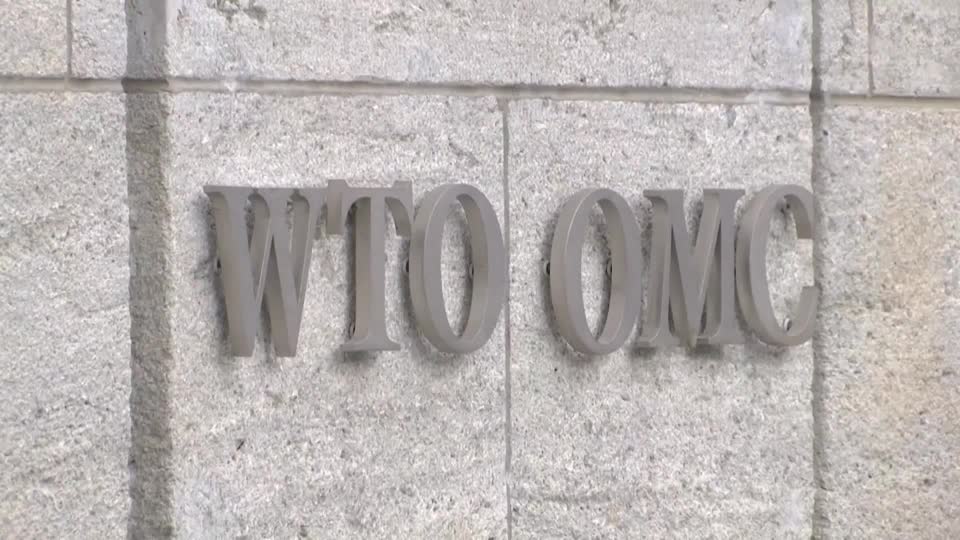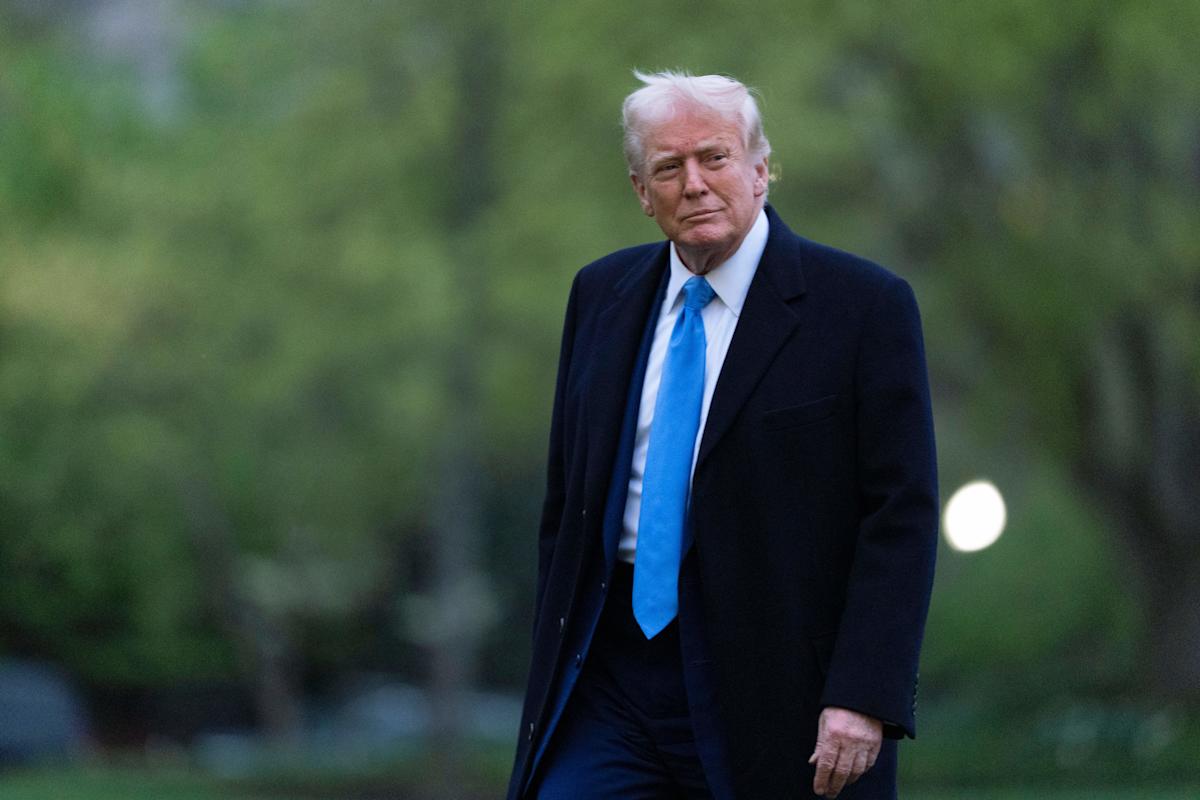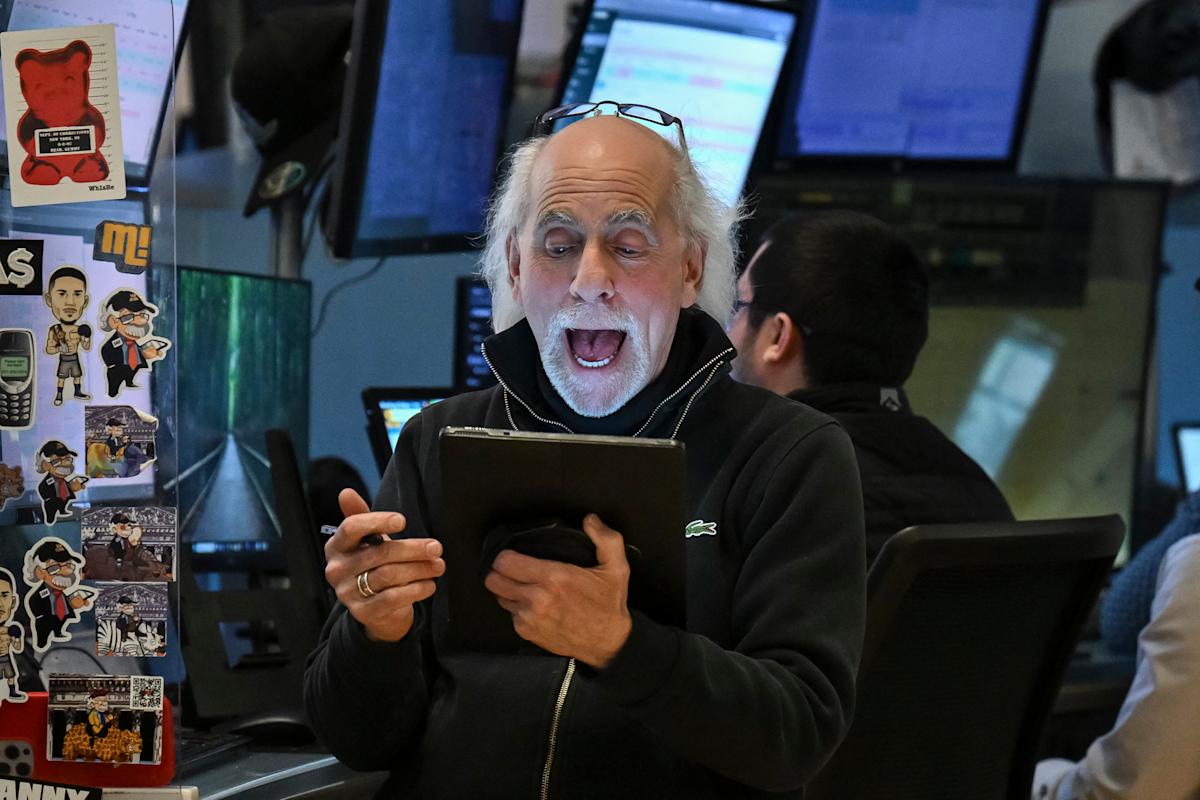Trade Tensions Escalate: US Halts Funding to World Trade Organization
Finance
2025-03-27 18:01:58Content

In a significant diplomatic move, the United States has temporarily halted its financial contributions to the World Trade Organization (WTO), signaling potential shifts in its global trade engagement. Multiple trade sources revealed to Reuters that the Trump administration is taking strategic steps to review and potentially reduce international organizational funding.
The pause in WTO budget contributions comes as part of a broader pattern of the administration's "America First" approach, which has previously seen withdrawal from other international bodies like the World Health Organization. During a budget meeting on March 4, a U.S. delegate indicated that payments for the 2024 and 2025 budgets are currently suspended pending a comprehensive review.
This latest development builds upon previous actions that have already weakened the WTO's operational capacity. In 2019, the United States disrupted the organization's dispute settlement system by blocking new judicial appointments to its top appeals court, effectively rendering the mechanism partially non-functional. Washington had criticized the WTO Appellate Body for what it perceived as judicial overreach in trade dispute resolutions.
Trade insiders suggest that the WTO is now strategizing a "Plan B" to address potential prolonged funding challenges, highlighting the significant impact of the U.S. decision on the international trade organization's future operations.
Global Trade Tremors: US Halts WTO Funding in Unprecedented Move
In a dramatic shift of international economic diplomacy, the United States has initiated a strategic withdrawal from multilateral trade institutions, signaling a profound recalibration of its global engagement strategy. This unprecedented action reflects a complex interplay of political ideology, fiscal policy, and geopolitical maneuvering that could potentially reshape the landscape of international trade relations.Navigating Uncharted Waters: America's Bold Trade Policy Transformation
The Funding Freeze: Decoding the Strategic Implications
The United States' decision to pause contributions to the World Trade Organization represents more than a mere budgetary adjustment. This calculated move unveils a deeper narrative of diplomatic recalibration, challenging the established norms of international economic cooperation. By strategically withholding financial support, the administration is sending a powerful message about its commitment to reassessing global institutional frameworks. The funding pause is not an isolated incident but part of a broader geopolitical strategy. It signals a willingness to leverage economic instruments as diplomatic leverage, potentially forcing institutional reforms that align more closely with American economic interests. This approach reflects a paradigm shift from collaborative multilateralism to a more transactional, national-interest-driven engagement model.Institutional Disruption: The Systemic Impact on Global Trade Governance
The WTO's operational capacity has already been significantly compromised by previous American interventions, particularly the 2019 blockade of judicial appointments to its appellate body. This latest funding pause threatens to further destabilize an already fragile international trade dispute resolution mechanism. Trade experts are closely monitoring the potential cascading effects of this strategic withdrawal. The organization is reportedly developing contingency plans, dubbed "Plan B", to mitigate the financial and operational challenges posed by the American funding suspension. This adaptive response underscores the resilience and flexibility required in contemporary global economic institutions.Ideological Underpinnings: The "America First" Doctrine in Action
The funding pause is a tangible manifestation of the "America First" doctrine, a political philosophy that prioritizes national interests over multilateral cooperation. By selectively disengaging from global institutions like the WTO and World Health Organization, the administration is reshaping America's international engagement strategy. This approach represents a fundamental reimagining of diplomatic and economic interactions. It challenges long-standing assumptions about collaborative international governance, suggesting a more unilateral and transactional approach to global relationships. The strategy reflects a growing skepticism towards supranational institutions and a desire to reclaim sovereign economic decision-making capabilities.Economic and Diplomatic Ripple Effects
The ramifications of this funding pause extend far beyond immediate budgetary considerations. It potentially signals a more profound realignment of global economic power dynamics. Other nations and trading blocs may be compelled to reassess their strategies, potentially accelerating the fragmentation of the post-World War II multilateral economic order. Diplomatic analysts suggest this move could prompt a reevaluation of international trade mechanisms, potentially catalyzing reforms or inspiring alternative collaborative frameworks. The uncertainty generated by this strategic withdrawal creates both challenges and opportunities for global economic governance.Future Outlook: Navigating Uncertainty
As the international community grapples with this significant development, the long-term implications remain uncertain. The WTO's ability to adapt, coupled with potential shifts in global economic power dynamics, will be crucial in determining the ultimate impact of this strategic withdrawal. The unfolding scenario underscores the complex, interconnected nature of modern global economic relations, where political ideology, national interests, and institutional frameworks continuously interact in a dynamic, unpredictable landscape.RELATED NEWS
Finance

Tech Titans Tumble: Why the 'Magnificent 7' Are Bleeding Investor Confidence This Quarter
2025-03-18 19:03:35
Finance

Economic Pressure Mounts: Trump Demands Fed Rate Cuts Amid Market Volatility
2025-04-07 12:27:55
Finance

Witcher Fans Brace for Long Wait: CD Projekt Hints at Distant Horizon for Next Epic Adventure
2025-03-25 18:16:19





